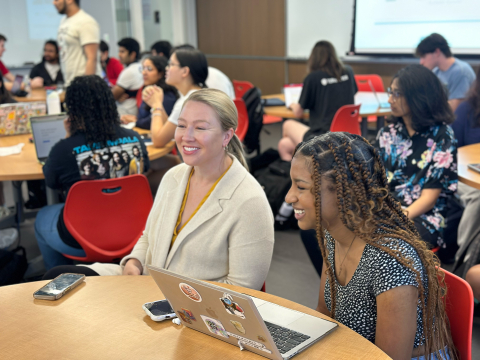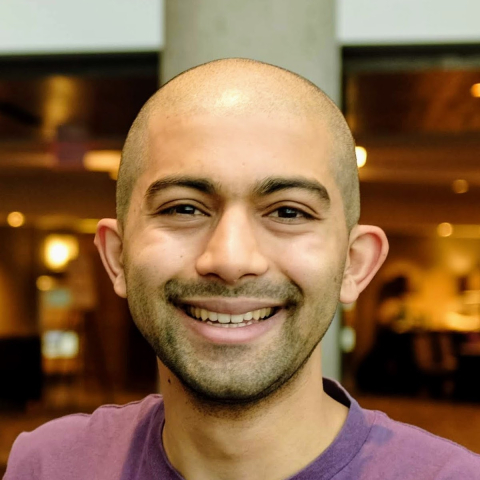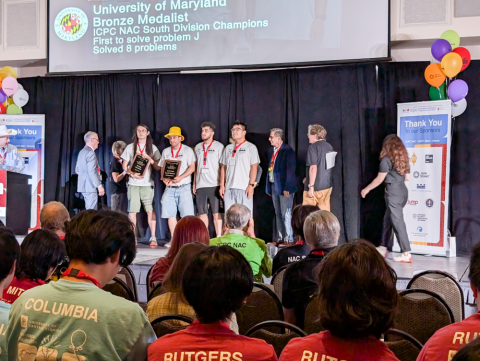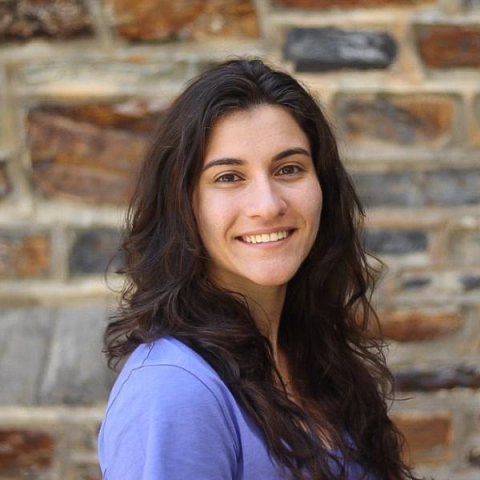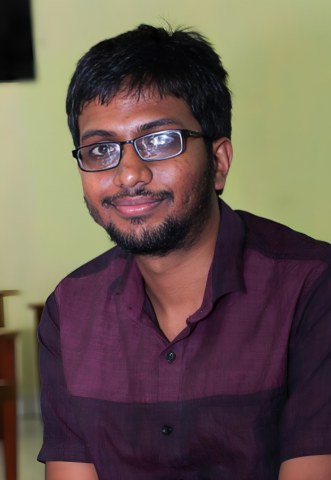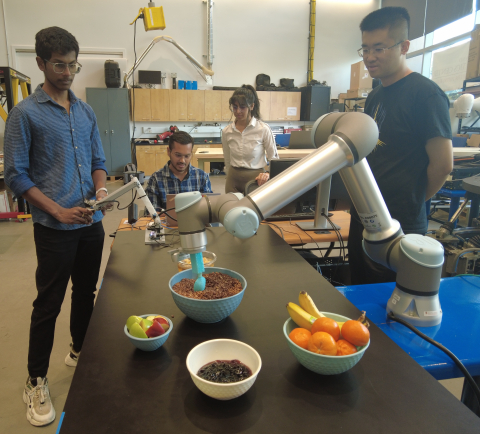Recent News & Accomplishments
2024
The Computer Science and Women, Gender, and Sexuality Studies departments collaborated on a new cross-listed course.
Issues of race and gender have shaped computing since its beginning, now with increasing debate over algorithmic bias, surveillance, data privacy and more. As technology evolves to play a larger role in everyday life, it’s even more important that people understand how technology can reinforce systems of power. This spring semester in a new course cross-listed in the University of Maryland’s Computer Science and Women, Gender, and Sexuality Studies (WGSS) departments, students examined the relationships between digital technology, power structures and social justice. The idea for the course,... read more
Sandeep Ramesh (B.S. ’22 mathematics; B.S. ’22 computer science) spins a fantasy sports internship into a full-time job at DraftKings.
Sandeep Ramesh (B.S. ’22, mathematics; B.S. ’22, computer science) has gone all-in on three things he’s passionate about: mathematics, computers and sports. But he never imagined he would find a career that combined those things until the summer before his senior year at the University of Maryland, when he landed a summer internship at DraftKings, a Boston-based daily fantasy and sports betting operator. "I don’t think a company like DraftKings was even on my radar if you’d asked me as a freshman or sophomore,” Ramesh said. “The career path in my head was always to go to Big Tech, you know... read more
The award recognizes theoretical accomplishments that have had a significant and demonstrable effect on the practice of computing.
Laxman Dhulipala , an assistant professor of computer science at the University of Maryland, has been honored with the 2024 Paris Kanellakis Theory and Practice Award. The award, one of the most prestigious given by the Association for Computing Machinery (ACM), recognizes theoretical accomplishments that have had a significant and demonstrable effect on the practice of computing. It honors Paris C. Kanellakis, a computer scientist who died in a plane crash in Colombia in 1995. Dhulipala was part of a team recognized for their contributions to algorithm engineering, including several... read more
An associate professor in the College of Information, Clegg has been at UMD since 2010.
Tamara Clegg has been appointed director of the University of Maryland’s Iribe Initiative for Inclusion and Diversity in Computing (I4C) for a two-year term effective July 1, 2024. Clegg is an associate professor in the College of Information and program director of the Bachelor of Arts degree in technology and information design . “I am very much looking forward to working with Tammy and our outstanding I4C team on fostering an inclusive computing computing at UMD. I4C and its programs provide a crucial support structure for hundreds of students, and Tammy's leadership will make an... read more
A Maryland National Guard soldier, Diop returned to his native country to provide critical support and help bridge cultural gaps.
After more than six years, Maryland National Guardsman Spc. Djibril Diop (B.S. '24, computer science), a 92Y Supply Specialist with Headquarters and Headquarters Company, 1st Battalion, 175th Infantry Regiment, returned to his native country to provide critical support and help bridge cultural gaps with partner-led training activities in support of exercise African Lion 2024 (AL24). Growing up Diop was born in 1998 and grew up with his mother and father in Saint Louis, a town in northern Senegal. Through his middle and high school years, Diop learned to speak three languages: English, French... read more
Colin Galen, Shayan Chashm Jahan and Cheng-Yuan Lee advance to the ICPC World Finals, which will be held in Kazakhstan in September 2024.
A student team from the University of Maryland's Department of Computer Science has earned a bronze medal at the International Collegiate Programming Contest (ICPC) North America Championship (NAC). The contest, held on May 27 and hosted by the University of Central Florida , featured 50 teams from universities across the United States and Canada. The top 17 teams advanced to the World Finals, which will take place in Kazakhstan in September 2024. Graduate student Shayan Chashm Jahan and undergraduate students Colin Galen and Cheng-Yuan Lee represented UMD in the competition. Under the... read more
Rathbun was awarded a National Defense Science and Engineering Graduate fellowship for her work in AI and sensor fusion.
Isabelle Rathbun , a computer science Ph.D. student at the University of Maryland, has been awarded a National Defense Science and Engineering Graduate (NDSEG) fellowship by the Department of Defense for her research in artificial intelligence within the computer vision and sensor fusion domains. Rathbun was one of 165 individuals from 68 institutions nationwide to receive a three-year NDSEG fellowship this year. The NDSEG Fellowship program, established by Congress, aims to increase the number of U.S. citizens earning doctoral degrees in science and engineering fields critical to national... read more
Herath’s research focuses on integrating and utilizing machine learning techniques to enhance and optimize array signal processing for radar applications.
University of Maryland Electrical and Computer Engineering Ph.D. student Sanjaya Herath has been awarded a SMART scholarship from the Department of Defense (DoD) for his research that focuses on integrating machine learning techniques to enhance and optimize array signal processing. Herath, advised by Department of Computer Science Assistant Professor Christopher Metzler , aims to improve radar systems' accuracy and efficiency. The Science, Mathematics, and Research for Transformation (SMART) Program is part of the DoD’s science, technology, engineering, and mathematics (STEM) portfolio. It... read more
Miers, an expert in cryptography, was recognized for his pioneering work involving the security of blockchain transactions.
A University of Maryland expert in cryptography was just recognized for his pioneering work involving the security of blockchain transactions, which use an advanced database mechanism that allows transparent information sharing within a business network. Ian Miers , an assistant professor of computer science with an appointment in the University of Maryland Institute for Advanced Computer Studies (UMIACS), was part of a team that won an IEEE Security and Privacy Test of Time award for a paper they authored in 2014. “ Zerocash: Decentralized Payments from Bitcoin ” builds a protocol for... read more
Second-year Ph.D. student Amisha Bhaskar is developing a robotic system to enhance autonomy for people with mobility issues.
When Amisha Bhaskar was an undergraduate studying engineering in Delhi, India, she took a field trip to a facility for disabled war veterans where she encountered a man with amputated hands. Bhaskar asked the man what technologies she could design that would help improve his quality of life. His reply—assistance with the ability to take care of himself so that he would not have to rely upon others—left an indelible impression. Now a second-year doctoral student at the University of Maryland studying computer science, Bhaskar is intently focused on this area of study. Working with others in... read more
